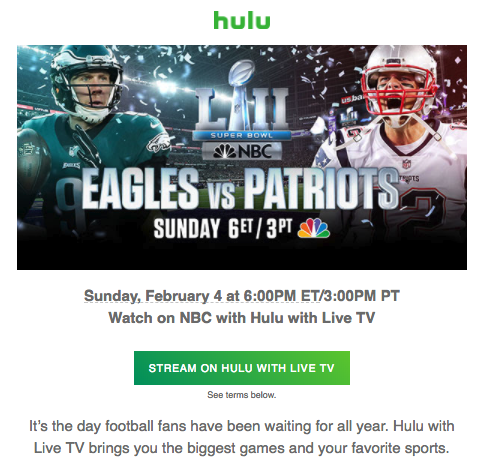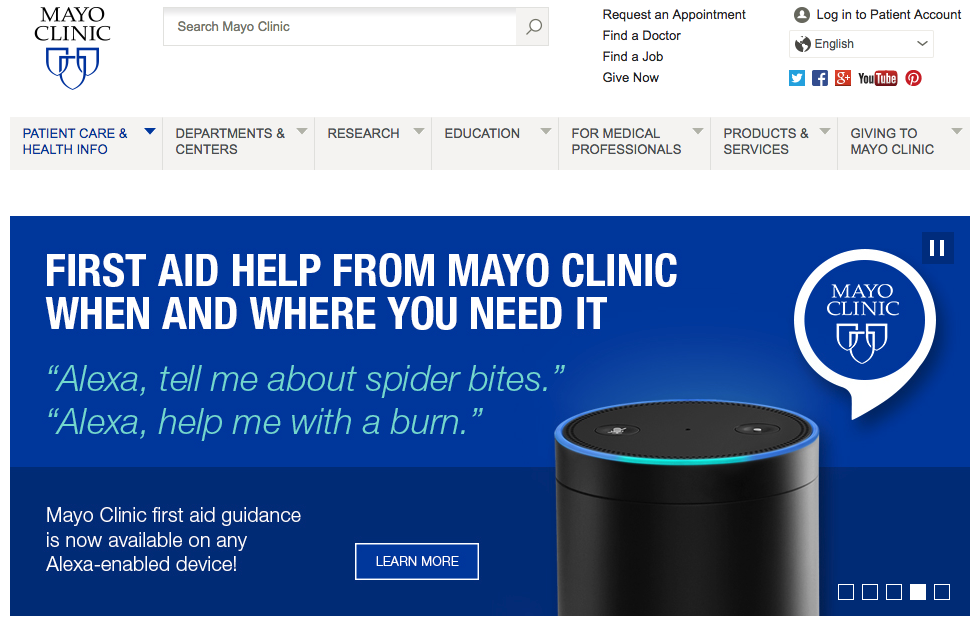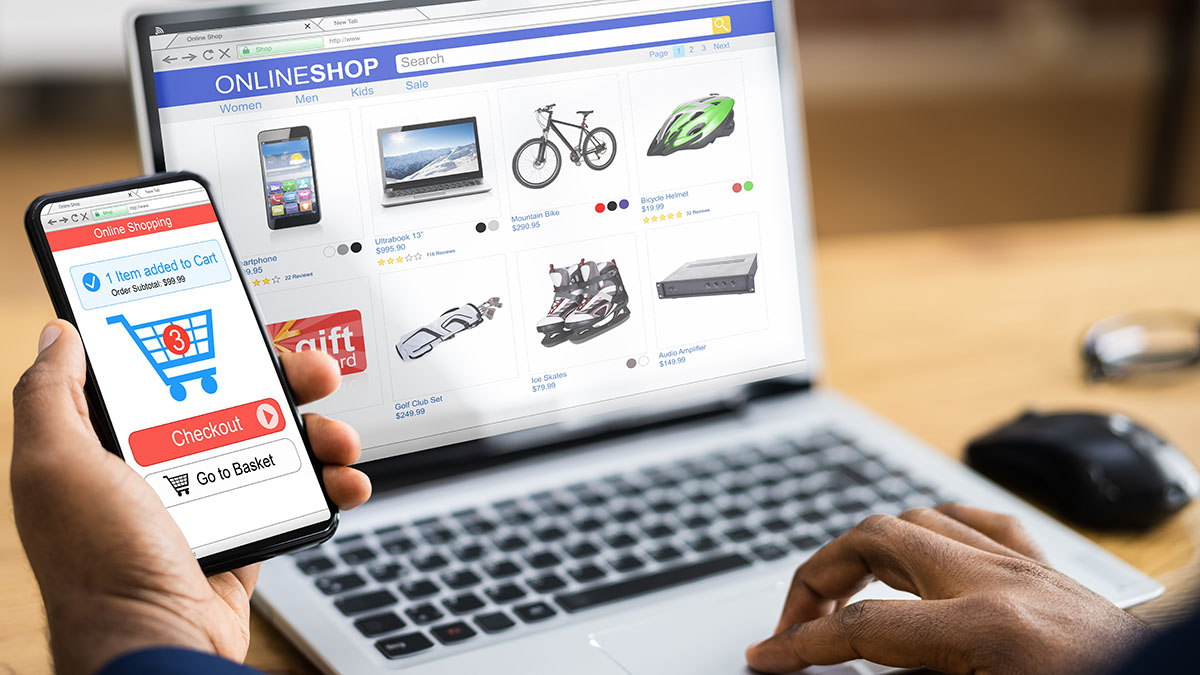The year 2021, has witnessed a more significant change in the banking sector. Dealing with…
5 Business Types That Get The Most ROI From Digital Marketing

Billboard marketing, newspaper print ads, flyers, radio adverts, etc., have been left bleeding in the dark alley that is the shadow of digital marketing. Except for larger, international brands or established smaller businesses, no one really thinks of traditional marketing methods anymore. However, getting an ROI from digital marketing is so effective and should be priority for any serious business. Here’s why.
- The presence of a global audience online makes it easier to interact with existing and potential customers.
- It costs significantly less to put together a digital marketing strategy.
- Most importantly, digital marketing yields a significantly higher ROI than any form of traditional marketing. Just take a look at this social media influencer and email marketing stats.
1. Food
If someone is planning a house party or trying to update their culinary expertise, they go online for inspiration.
People’s love for food usually stems from a personal place. Perhaps, a recipe their grandmother used to cook, or the first meal they prepared with their child. Either way, they are usually fiercely passionate about whatever foods and recipes they love. And by extension, they have a love for the brands that make them. Here’s what food companies do to keep their audience happy and the revenue flowing.
How-to video content
Forget the days of recipe cards and black and white texts in a book. People no longer want to be told how to do it, they want to be shown how. That is why the go-to media type for content curation in this industry is visual media. These formats draws the viewer in and make them feel whatever kind of emotion you want them to. Take a look at these video trends that are sure to continue into 2018.
Plus, video content performs best on social media channels like Facebook and Instagram. Snapchat, Pinterest, and of course, Youtube also make the list. So if social media isn’t a part of your brand’s digital marketing strategy, it should be.
2. Fitness and Nutrition
The increasing awareness of holistic health has contributed to boosting the fitness and nutrition industry’s revenue. The industry generates about $80 billion annually. It also posts a compound annual growth rate (CAGR) of 4.3 percent. According to this report, Australians alone spend about $8.5 billion annually in this sector.
 Most fitness businesses and social media fitness influencers in this industry use most of the same platforms as those in the food industry. And there’s a good reason why – ROI from digital marketing is in the numbers. For instance, about 75% of Instagram users take action after viewing an ad on the platform. Liam Thompson, a personal trainer also claimed that it cost him a maximum of $100 on Facebook ads to get clients with an average revenue value of £346.
Most fitness businesses and social media fitness influencers in this industry use most of the same platforms as those in the food industry. And there’s a good reason why – ROI from digital marketing is in the numbers. For instance, about 75% of Instagram users take action after viewing an ad on the platform. Liam Thompson, a personal trainer also claimed that it cost him a maximum of $100 on Facebook ads to get clients with an average revenue value of £346.
Highly actionable content
The leaders in this industry create highly engaging and actionable content that their followers and subscribers can always get value from. And this content always comes in different forms. Follow along workout video on Instagram or even a detailed blog post on your website are just some of the ways brands engage with their audience. Social advertising should never be underestimated either. It remains a great way to drive traffic to your site by advertising the value you give to your ideal audience.
Keep in mind, if you’re going to drive traffic to your site, make sure your page speed complies with Google’s recommended load time of less than 6 seconds.
Highly shareable content
People love before and after photos. Photos of genuine transformations of people who have worked out in your gym, used your workout product or anything else you offer that is directly responsible for their transformation is a great way to generate virality.
User generated content
For spaces like Facebook, Instagram, and Twitter, brands that always use hashtags make their content more discoverable. Create a personal hashtag and encourage your audience to use it whenever they make any posts related to your product or services.
3. Entertainment
The inclusion of this industry needs little explanation. Content from this industry contributes largely to the way we think. It ignites global and domestic discussion around certain societal issues. Whether it’s music about (or for) a tragic event or movies inspired by hard hitting global happenings, or a funny video that went viral, content from this industry tends to have one of the highest engagement rates. As a consequence, it has an equally high conversion rate.
 Little wonder the US media and entertainment industry’s digital ad spend has gone over $7.5 billion this year alone. Juggernauts like Netflix spend hundreds of millions of dollars annually on advertising and bring in revenue in billions of dollars every quarter. Also, Jungle Creations founder, Jamie Bolding claiming to be on track to hit an $8 million turnover for 2017.
Little wonder the US media and entertainment industry’s digital ad spend has gone over $7.5 billion this year alone. Juggernauts like Netflix spend hundreds of millions of dollars annually on advertising and bring in revenue in billions of dollars every quarter. Also, Jungle Creations founder, Jamie Bolding claiming to be on track to hit an $8 million turnover for 2017.
Create communities
Every company that desires a sustainable, loyal following online needs more than an official social media page and a dedicated website. Top marketers in entertainment know to spread their company’s influence over a wide radius. Think communities like Facebook groups and pages, google hangout sessions, dedicated forums, etc all dedicated to extending the narrative of your company’s products and services.
Reading top marketing blogs and commenting on those blogs is a great way to bring brand visibility, too.
User approved content
Besides, unforeseen financial burdens, unrelatable content is probably the biggest reason a lot of movie series productions have been canned after only just starting out. People either didn’t like the story of the movie or didn’t like the way it was played out. Whether it is a full on movie production, or a series of comedy skits make sure to check with your audience first. Find a way to get a discussion started on the issues close to their hearts that they would love addressed, such as maybe gender pay gap (as treated on HBO’s Insecure).
If you want your content to garner significant engagement, let the general lean of the discussion guide you in making relevant content. A good source of inspiration would be Viral Thread, a Facebook channel with over 20 million followers that truly understands how to make viral video content and garners millions of views per video.
String your contents together as much as reasonable
If you were doing a video compiling people’s participation in the recent “Straight Arm Challenge”, at the end you’d provide a link to another video for your audience to relive the hilarious moments from the “Mannequin Challenge” from last year, and in that video another link to a similar video for the “Ice Bucket Challenge” from 2014. This way your audience is taken through a catalogue of related videos that they love. Not to mention it is a good SEO-inspired way to resurrect old content from your archives. Always seek out opportunities to do this with your content.
If you need inspiration for content, listen to top podcasts for digital marketers and learn the tricks of the trade.
Tap into your network
Marketing is a good time to tap into all the resources you have, financial and otherwise. Reach out to your companies network of marketer friends, influencers, etc. Strike a deal that will see them market your content to their own audience, and vice versa. This method of cross marketing is usually very effective as it opens you open to a segment of people you may never have reached on your own. Floyd Mayweather did something of the sort when he sort out his big celebrity friends in the music industry to help shout out his match against Mcgregor to their fan base.
4. Retail
With empires like Walmart, Macy’s, Amazon, and Alibaba eating up the world’s finished product sales volume, this list would be lackluster if we excluded the retail industry. In the US alone, the retail industry accounts for approximately two-thirds of the nation’s gross domestic product. It also accounts for about $25.3 trillion in global sales in 2016. Successful business in this sector have a few things in common that directly contribute to their digital marketing ROI.
Segmented email targeting
One thing retail businesses have in ever increasing numbers is an email list. Email has proven to be the most effective channel for reaching out to their customers and site visitors in a personalized manner. With email, you can retarget those who have visited your site but didn’t purchase. Then, you can offer discounts to customers on products they browsed, alert your customers about new products on your inventory, etc.
Mobile friendly marketing
Like other industries, businesses here optimize their content, pages, and ads for mobile users. With mobile digital marketing strategies, you can target users when they are in your store or in select locations (geo-targeting). They also usually develop an app to assist mobile users to browse their site, purchase, leave reviews, etc.
Affiliate marketing
Businesses in this industry are the biggest utilizers of affiliate marketing strategies. Save a ton on your marketing budget by getting ordinary people to advertise your products to the world for a commission.
Prioritize social media engagement
Successful retail businesses use social media to engage with their audience, announce deals and discounts, answer complaints. Social media is generally used to maintain a positive public perception of their brand. They do this via an official social media page and affiliate pages and online communities; social media is the most effective PR tool for any business.
5. Health
At the slightest malfunction of the body system, what most people will do is go online to find out more information about their symptoms. People are increasingly relying on online information to make healthcare decisions. It makes sense that this medical experts and organizations should be the ones providing that information.
User friendly website
Build a user-friendly, easy to navigate website. Content has to be properly arranged so that patients can easily navigate through it and find what they are looking for. It is estimated that good flow of information and web copy can deliver up to 83 percent ROI for your company.
Catalogue of actionable and inspiring information
Successful medical businesses prioritize content marketing, specifically with a blog. They provide a continuous stream of detailed information on various health conditions. From how to detect them early and how to treat them, medical blogs provide answers to frequently asked questions. This way patients receive constant value without having to visit the doctor.
Proactive Value
Send out monthly or weekly newsletters to your patients. It is one of the most pro-active methods of offering blog-like value to your patients. When you do this, ensure that you segment your subscribers according to their interests, and send only relevant information to them. It could be an explanatory video, breaking industry news or a link to a current blog post.
Good SEO efforts
SEO efforts are a must for every business in every industry. The medical industry owns 1 percent of all daily Google searches (that’s 35 million searches per day). Successful medical businesses center their content on relevant words and phrases their patients use in their queries. Use a keyword research tool to help you find the best-ranking terms your patients use to search for your kind of business. Use these on the relevant pages of your website to help drive organic traffic. Remember, the best content with the worst SEO is just a waste of good knowledge.
Active social media presence
A strong social media presence is the main ingredient successful medical establishments use to extend their reach. In fact, 60 percent of social media users attribute greater value to social media content posted by doctors. Videos from medical experts, blog posts revealing amazing staff-patient relationships, inspiring patient reviews or announcing upcoming events. Just make sure they are carefully thought through and scheduled ahead of time. A great feature to add would be a “Book Now” button for those times when your patients will want to make the jump from free advice to book a session with the physician.
Final Thoughts:
Whether you’re in the top 5 business types or not, there’s a lot to be learned from the health, retail and entertainment industries that you can apply to your own digital marketing efforts. From understanding the importance of user-generated content to creating segmented, personalized emails, seeing ROI from digital marketing is within reach.



